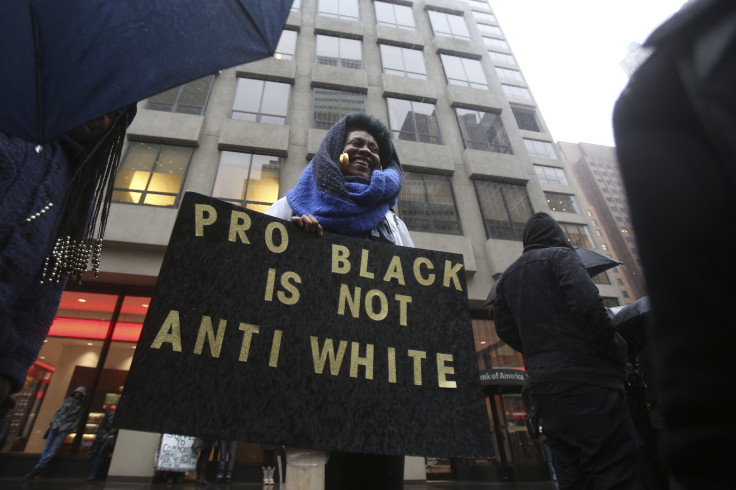Mark Zuckerberg had to ask racist Facebook employees to stop crossing out 'Black Lives Matter' slogans
Facebook CEO Mark Zuckerberg had to issue an internal memo to his employees last Thursday in response to some of his staff crossing out the slogan, "Black Lives Matter", on the company's free expression wall at its California headquarters, and replacing it with "All Lives Matter".
In the private letter, which was released on an employees only announcement page and later published by Gizmodo, Zuckerberg called the acts "malicious" for continuing to happen even after previous warnings, signalling that the issue was not new.
"Despite my clear communication at Q&A last week that this was unacceptable ... this has happened again. I was already very disappointed by this disrespectful behavior before, but after my communication I now consider this malicious as well," he said in the note.
Like a lot of companies in Silicon Valley, Facebook is a predominantly white (and male-centric) tech firm, with African Americans reportedly making up less than two percent of its staff despite efforts to recruit a more diverse workforce. However, it seems Zuckerberg is now enforcing a stronger stance against any action that is disrespectful to a particular group:
"We've never had rules around what people can write on our walls -- we expect everybody to treat each other with respect. Regardless of the content or location, crossing out something means silencing speech, or that one person's speech is more important that another's. Facebook should be a service and a community where everyone is treated with respect.
"This has been a deeply hurtful and tiresome experience for the black community and really the entire Facebook community."
The #BlackLivesMatter movement campaigns against violence and discrimination against black people. It originated within the African American community following the 2013 acquittal of George Zimmerman, who was found not guilty of shooting dead unarmed black teen, Trayvon Martin.
Alicia Garza, one of the founders of the movement, had penned a "love note to black folks" on Facebook after news broke about Zimmerman's acquittal, The California Sunday reports. Her letter ended with: "Black people. I love you. I love us. Our lives matter".
Patrisse Cullors, affected by the same news, was moved by her friend's Garza's post and decided to label her own comments with #blacklivesmatter. Before long, the hashtag began taking off on Twitter, and the pair, together with another activist Opal Tometi, decided to start the now famous social media campaign.
Today, the movement has become an ethos adopted by all races and represents the call to value black lives. As the website says, it is a "response to the virulent anti-black racism that permeates our society".
However, the movement has also seen the rise of the #AllLivesMatter sentiment, which argues that "we should not make everything about race" and that all humans should be valued regardless of their race, religion or sexual orientation.
On Monday, US Presidential candidate Donald Trump just responded to #BlackLivesMatter protestors with the statement: "Remember people, we have to love everyone. All lives matter".
While there is support for this sentiment, it has largely been criticised by commentators for being racist, a flawed argument, and avoiding the real issue of racism and police brutality.
"#BlackLivesMatter draws attention to the specific issue of police killing Black people with frequent impunity," Huffington Post contributor Joshua Adams explained. "It cries out that a Black person's life should matter as much as anyone else's. It makes the firm accusation that in this country's past and present, Black life hasn't been treated as if it matters."

Zuckerberg's note is an echo of Adams' reasoning, with the Facebook CEO pointing out that "Black lives matter doesn't mean other lives don't -- it's simply asking that the black community also achieves the justice they deserve".
Facebook is now investigating who the culprit is, with Zuckerberg ending his note by encouraging employees to educate themselves about the Black Lives Matter movement.




















